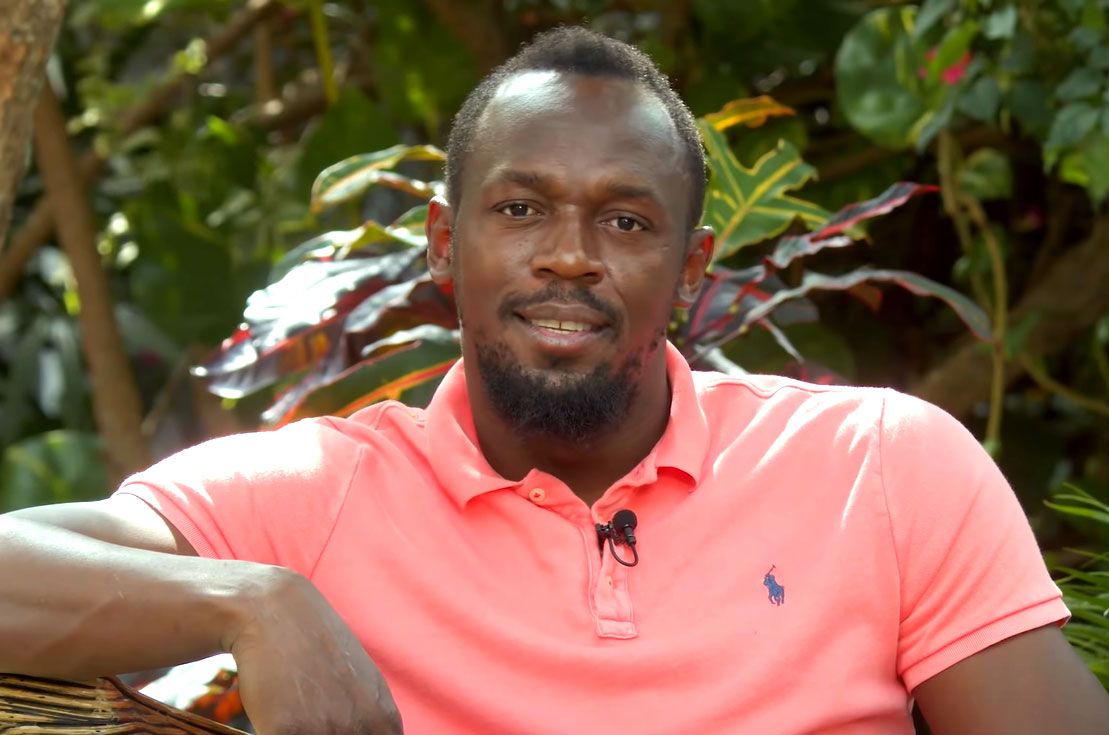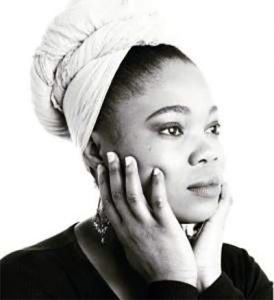Is Usain Bolt Black? Questions I Get Asked As A Jamaican Living In Japan

The question came from Keigo, my 19-year-old Japanese student. What brought about his question? I have no idea.
It just came. Random — odd — out of the blue — “Is Usain Bolt Black?”
At first, I laughed. I mean, what was I supposed to do? Even the colour blind can see that Usain is black. But this is Japan. Though it is the age of information, many Japanese people are yet to get in formation and think about a world beyond their own homeland.
Instead of giving my usual speech about having access to the world wide web and everything being a ‘fingertip’ away, I decided to merely answer his question.
“Yes,” I said. “Usain Bolt is black.”
What he said next was still puzzling.
“But he is rich.”
I was lost. I didn’t understand. Keigo tried to clarify my confusion by re-asking the question.
“If he’s black, but he is rich, is he still black?”
Now, I was paying attention. The question had somehow changed from nonsensical to profound.
“If he’s black, but he is rich, is he still black?”
I want to tell you that I had an immediate response. I want to tell you that not only was my response immediate, but it was just as philosophical and profound as the question Keigo asked. But, in that moment, all I did was give confirmation.
“Yes, Keigo.” I said. “He is rich, and he is still black.”
That was that. I was done with the conversation, but it wasn’t done with me.
The question stayed with me while I rode the train home that Friday evening. It wouldn’t leave me, even as I laid in bed that night. And when I woke up Saturday morning with it still on my mind, I realised why. It was because of something I’d read on the net some time ago; the story of Sarah Rector.
The article titled ‘The Richest Black Girl in the World’ told the story of a young girl born on a Creek Indian Plantation in 1902. Her parents, Joseph and Rose Rector were descendants of African slaves, but were enslaved by the Creek rather than white slave owners. As a result, when these slaves were freed, they were given 160 acres of land each.
Racism still played a major role in this gift as the land Sarah’s family received was unsuitable for farming and generally worthless. But, as luck would have it, oil was discovered on the Rector’s property and Sarah became the first black female millionaire in Kansas City. With this new wealth, many whites didn’t know how to treat her, but the Oklahoma Legislature declared her to be a white person so that she would be allowed the opportunities befitting of her wealth and position.
With this story now at the forefront of my mind, I was able to process Keigo’s question.
“Is Usain Bolt, the fastest man in the world, the first man in Olympic history to win both the 100- and 200-meter race, the winner of nine gold medals in Olympic events, a legend among his peers and many people across the world — this man — this accomplished black man, is he still perceived as black?
Sarah’s story showed that wealth somehow equates to whiteness and as such eliminates blackness. But that was 1902. Let’s move to the year 2011. It was the year when famous rap star Dwayne Carter who goes by the sobriquet ‘Lil Wayne’ caught fire for a line used in his song, ‘Right Above’. It stated: “Beautiful black woman. I bet that b*tch looked better red.”
In an interview done later that year, he was asked: “Why would you say something like that when you have a black daughter?” Wayne’s response was short, but to the point. He said, “My daughter is a dark-skinned millionaire.” Translation: Yea, she’s black. But, she’s a rich. There’s a difference.
Now, based on these two stories, is it safe to say wealth can somehow eliminate blackness? Let’s continue to unpack.
Let’s skip to something more current. Let’s move to the year 2017 and look at the life of basketball player Lebron James. He’s black, but he’s also rich and famous. That should have served as protection even in what was Trump’s America, right? Wrong. He along with the rest of the world learned that riches and accomplishments did nothing to eliminate blackness when his LA home was vandalised with racist graffiti.
Now, let’s forget about wealth for a while. Let’s forget about accomplishments and blackness with ‘celebrity’ attached. Let’s examine blackness. Just blackness. Let’s start with me.
 I never thought about my blackness when I lived in Jamaica. In fact, I didn’t even realise I was black until I moved to Japan. Well, there was that time in Manhattan when a Caucasian clerk left the cash box unattended to follow me around the store. At that point, I equated my blackness to race and racial discrimination. Then, there was that time in Connecticut when I entered a restroom and said, ‘Good Morning’ and shocked the three white women standing at the mirror.
I never thought about my blackness when I lived in Jamaica. In fact, I didn’t even realise I was black until I moved to Japan. Well, there was that time in Manhattan when a Caucasian clerk left the cash box unattended to follow me around the store. At that point, I equated my blackness to race and racial discrimination. Then, there was that time in Connecticut when I entered a restroom and said, ‘Good Morning’ and shocked the three white women standing at the mirror.
One exclaimed: ‘You’re not from around here, are you?’ When I told her I was Jamaican, her eyes lit up. “Oh, I love Caribbean blacks,” she said. “They are so well-mannered, and such hard workers”. At that time, I equated blackness to a tier system with Caribbean black being a little higher up the rank (in the eyes of Caucasians) than say our African – American counterparts.
Then, there was this other time in New York when I went to see “Shakespeare in the Park” and was snubbed by another black person. My boyfriend and I were the only two black people in Central Park that evening, and the black usher looked at us, rolled her eyes and continued on without giving us a program.
At that time, I equated my blackness to just being at the wrong place. In my mind, that usher was like, ‘What the hell are you doing here among all these Caucasoid people with your literature-loving, Shakespeare-in-the-park watching ass?’
And of course, I can’t continue without talking about my first month in Japan when a Chinese student explained that ‘American black people were always fat, Jamaican black people were not so fat, and African black people had diseases.’ At that time — at that time I was trying to adjust to being in a new country and I ignored her. Now, as I look back, it saddens me to see that even at 12-years-old, she’d already boxed blackness and placed it under labels of ‘fat’, ‘not so fat’ and ‘diseased’.
Japan is where I really paused to examine my blackness. Before living here, my lips were just lips — not black lips. My backside was just that, a backside — not a black backside. My hair was just hair — not black hair. Nobody referred to me as exotic. Nobody stopped and asked to touch my hair. Nobody asked me if it was clean or if I washed it every day. Nobody took pictures of me and ran. Before Japan, my black blended in.
Keigo’s question had somehow caused me to examine blackness from different perspectives. And this examination brought about an awareness of how blackness is perceived in terms of wealth and worldly possessions as opposed to blackness that is considered ‘normal’ or poor.
My blackness is blackness without wealth, or fame. It is the kind of blackness that comes with judgement and assumptions. And you know the assumptions because you’ve heard the questions. She’s black, but she’s reading. Can she read? She’s black, she must come from Africa. Aren’t all black people from Africa? She’s black, she must have AIDS. I wonder if she has AIDS? I wonder if she showers? Do black people shower every day? Invite her for fried chicken. All black people love fried chicken, right?
My blackness is standard. It is basic. It is no way comparable to Usain Bolt.
A man whose blackness is questioned by a college student in Tokyo, Japan.
Is Usain Bolt, black?
Maybe it’s because he dares to be unapologetically himself in a world where blackness is seen as threat. A world where blackness can diminish your statue, make null and void your accomplishments. Where blackness, even on a small island called Jamaica, can still make people view you as a lil country boy. A lil country boy who got lucky — who doesn’t deserve the praise or recognition — who needs to go back where he comes from. Read article here.
In such a country, in such a world, is Usain Bolt black?
Yes Keigo, he is.
Like this blog? Found it informative? Then, subscribe to get stories of my experiences as a black woman living in Japan or stories of Jamaicans jaminating a ya’ad & abroad. Email us at [email protected] or follow us on Facebook A Piece of Mine or Instagram @a_piece_of_mine.
Till next time, remember showing support is totally free!! Here are 4 ways you can do this.
- Share my content with someone who you think will enjoy it.
- Comment or write a positive review.
- Follow me on social media here or here.
- Sign up to receive my posts. It’s really easy, just scroll down to the end of the page & subscribeeeeeeee!!
Download The Jamaican Blogs™ App for your Android device: HERE
Remember to share this article on Facebook and other Social Media Platforms. To submit your own articles or to advertise with us please send us an EMAIL at: [email protected]


I thoroughly enjoyed this blog. I’m a 3rd year student teacher and have been thinking to apply to teach in Japan when I graduate. While I am excited to go, I have the same amount of fear as I am excited. As you’ve shared, while I am well aware that I am black, i have also never been made aware of this fact throughout my day to day life and I’m unsure as to how this change of lifestyle will affect me. I know living in Japan will be hard, much harder than I think but I am trying to stay positive.